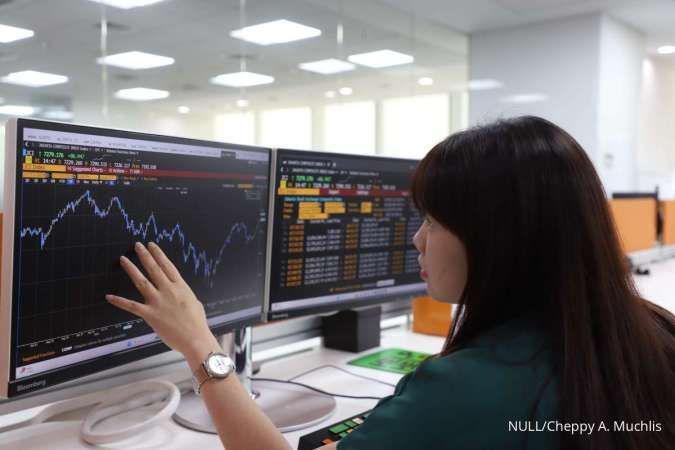KONTAN.CO.ID - BEIJING. China's banks extended more new loans than expected in November after a sharp drop the previous month, in a sign that recent government pressure on lenders to help struggling smaller firms may be starting to bear fruit. But several other key credit gauges remained stuck at record lows or fell to new lows, suggesting China's policymakers will need to step up support efforts soon to stabilise the slowing economy. Chinese banks extended 1.25 trillion yuan ($182 billion) in net new yuan loans in November, slightly more than analysts had expected and up from the previous month, according to data published by the People's Bank of China on Tuesday.
Analysts polled by Reuters had predicted new yuan loans of 1.1 trillion yuan last month, up from 697 billion yuan in October and roughly in line with November last year. October's weak readings had largely been attributed to seasonal factors, with November lending typically snapping back for the same reasons. But China's stubbornly weak credit growth has fueled speculation that authorities will have to take more aggressive policy action in coming months -- such as a benchmark rate cut - to reduce the risk of a sharper economic slowdown in 2019. Total social financing (TSF), a broad measure of liquidity and credit in the economy, jumped to 1.52 trillion yuan in November from 728.8 billion yuan in October, also beating expectations. But growth of outstanding TSF slowed to a new all-time low of 9.9 percent from 10.2 percent in October, as regulators continued to crack down on riskier types of financing despite indications that it is weighing on broader business activity. TSF includes off-balance sheet forms of financing that exist outside the conventional bank lending system, such as initial public offerings, loans from trust companies and bond sales. Growing financial strains The data also pointed to growing financial strains on Chinese companies as the economy continues to lose steam amid softening domestic consumption and weakening global demand. Money supply growth remained at record lows, highlighting the impact of the official drive to curb shadow lending, which is slowly shutting off a major source of funding for smaller, private firms. Broad M2 money supply grew 8.0 percent in November from a year earlier, matching forecasts and October's pace. Adding to signs of growing financial strains and faltering business confidence, M1 money supply rose just 1.5 percent on-year, the weakest pace since January 2014. M1 reflects both the strength of corporate cash positions and whether they are building up funds for possible future investments. Slowing sales are adding to cash flow pressures and eroding credit quality, with corporate bond defaults on track to hit a record this year. Outstanding yuan loans grew 13.1 percent from a year earlier, a touch above expectations of 13 percent and the same pace as October. More help on the way? Economists had already widely expected further fiscal and monetary policy easing in China in coming quarters, even if trade talks now under way with the United States succeed in defusing the two sides' bitter trade war. The PBOC has slashed banks' reserve requirement ratios (RRR) four times so far this year and more cuts are expected in 2019 to keep liquidity ample. It has also brought down interbank market rates and is pressing banks to keep lending to cash-starved companies, though lenders are reluctant to risk another spike in bad loans after years of pressure from regulators to reduce riskier lending.
But those relatively modest measures, along with higher government spending on infrastructure and tax cuts, will take some time to put a floor under the cooling economy. "We believe the markets are putting too much hope on the speed, scale, scope and efficiency of Beijing’s stimulus measures (so far), and that they may be unprepared for a significantly worse slowdown in the second quarter next year," economists at Nomura said in a note this week. Nomura believes China's growth in the first half of 2019 could slow to a pace not seen since 1990, with high levels of debt restraining Beijing's ability to launch massive stimulus as it has in the past. Nomura forecasts economic growth will slow from an expected 6.5 percent this quarter to 6.3 percent early in 2019 and 5.7 percent in spring, before edging back up later in the year as support measures begin to kick in.




